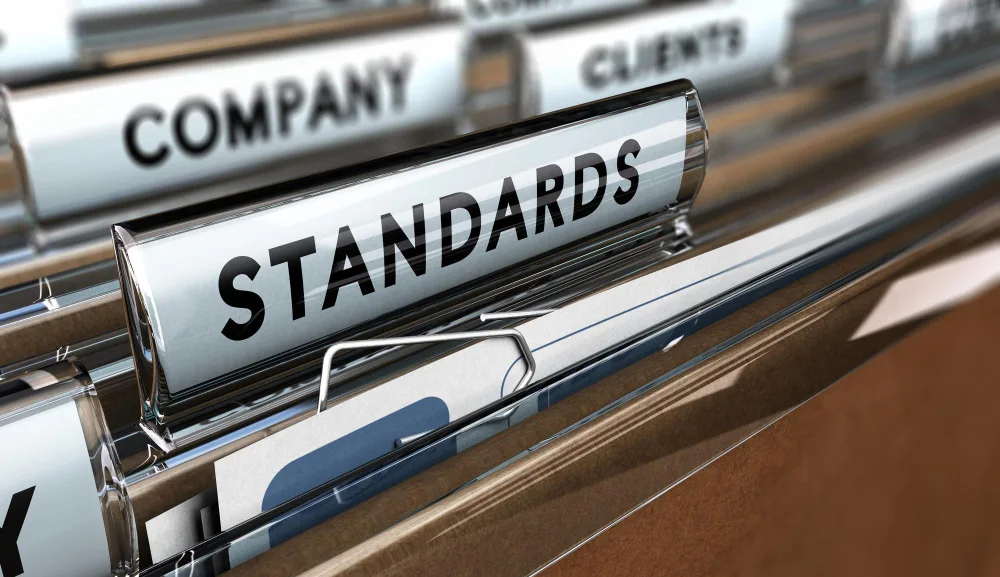Are you ready to take your career in quality control to the next level ? Becoming a successful Quality Control Manager requires dedication, attention to detail and the ability to lead a team towards excellence . In this blog post, we will outline seven essential steps that will help you achieve success in this important role . Whether you are just starting out in your career or looking to advance to a higher position, these tips will guide you on the path to becoming a respected and effective Quality Control Manager . Let’s dive in !
Introduction to Quality Control Management
Quality control management is an essential aspect of any industry that aims to provide high-quality products and services to its customers . It is a process that ensures the consistency, reliability and efficiency of goods and services through a series of planned strategies and techniques . As a quality control manager, it is your responsibility to oversee all aspects of the quality control process and ensure that products meet the desired standards .
The primary goal of quality control management is to identify, prevent and correct defects or errors in goods or services before they reach the customer . This not only helps maintain customer satisfaction but also reduces waste, increases productivity and lowers costs for the company .
To become a successful quality control manager, you must first understand the importance of this role in an organization . You are responsible for maintaining the highest level of product quality while keeping production costs low . This requires strong leadership skills, attention to detail, problem-solving abilities and effective communication with different teams within the company .
One crucial aspect of quality control management is having in-depth knowledge about all processes involved in production . This includes understanding each step in manufacturing or service delivery as well as identifying potential areas where defects may occur . With this information on hand, you can develop effective plans to monitor and improve these processes continually .
In addition to monitoring processes, another critical task for a quality control manager is setting specific guidelines and standards for product or service design and performance . These must align with customer expectations while considering regulatory requirements set by government bodies or industry organizations .
Furthermore, implementing appropriate testing methods is crucial in ensuring quality control operations run smoothly . These tests help identify any discrepancies between produced items or services with established standards . Conducting these tests regularly at various stages during production enables you to detect potential issues earlier on rather than waiting until final inspection when it may be too late .
Lastly,it’s essential as a quality control manager,to constantly analyze data from different departments such as sales,research,and development,customer feedback,and production reports to identify where improvements can be made . With this information, you can implement corrective measures and continually improve processes to achieve higher quality standards .
As a quality control manager, your role is crucial in maintaining the reputation of the company and ensuring customer satisfaction . By understanding the fundamentals of quality control management and continuously improving processes, you can become a successful leader in this field .
Step 1 : Understand the Role of a Quality Control Manager
The role of a quality control manager is crucial in ensuring the production and delivery of high-quality products and services . They are responsible for monitoring, testing and inspecting various processes to ensure that they meet industry standards and comply with regulations . This section will outline the key responsibilities and duties of a quality control manager, as well as the essential skills needed to excel in this position .
Key Responsibilities :
As a quality control manager, your primary responsibility is to oversee all aspects of quality assurance within an organization . Some of the key responsibilities include :
- Developing Quality Standards :
One of the critical roles of a quality control manager is to develop clear and measurable standards for different processes within an organization . These standards should be based on industry regulations, customer expectations and company goals .
- Implementing Quality Assurance Procedures :
Quality control managers must also implement detailed procedures for testing, inspecting and evaluating products or services at different stages of production . These procedures help maintain consistency in quality levels and ensure that any issues are detected early on .
- Conducting Inspections :
Conducting regular inspections is another vital responsibility for quality control managers . This involves physically examining products or observing services being performed to ensure compliance with established guidelines .
- Analyzing Data :
Quality control managers are also responsible for analyzing data collected during inspections or tests to identify any patterns or trends that could impact product quality or service delivery .
- Communicating Findings :
After completing inspections or tests, quality control managers must communicate their findings to relevant teams within the organization promptly . This includes reporting any issues discovered during inspections as well as providing recommendations for improvement .
Essential Skills :
To be successful in this role, there are several essential skills that you need to possess :
- Attention to Detail :
As a quality control manager, you must have an eye for detail to spot any potential issues that may affect product quality .
- Strong Analytical Skills :
You must be able to analyze data accurately and draw meaningful conclusions to make informed decisions .
- Leadership Skills :
As a quality control manager, you will be working with teams from different departments . Therefore, strong leadership skills are necessary to ensure all team members are working towards the same goal .
- Communication Skills :
Effective communication is vital in this role as you will need to explain complex technical information to various stakeholders effectively .
By understanding the role of a quality control manager and having the essential skills required, you can set yourself up for success in this important position . In the following sections, we will delve further into what it takes to become a successful quality control manager .
Step 2 : Educate Yourself on Quality Control Processes and Standards
As a quality control manager, it is crucial to have a thorough understanding of quality control processes and standards in order to effectively manage the quality of products or services within an organization . This step involves gaining knowledge and skills related to quality control through various educational resources .
- Research industry standards :
The first step towards educating yourself on quality control processes and standards is to research the specific industry that your organization operates in . Every industry has its own set of regulations, guidelines and best practices for ensuring product or service quality . Understanding these standards will help you align your efforts with industry expectations .
- Attend seminars or workshops :
Attending seminars or workshops focused on quality control can provide valuable insights into current trends, strategies and techniques used in the field . Network with other professionals and experts in the industry to exchange ideas and gain practical knowledge on how to implement effective quality control processes .
- Enroll in courses or certifications :
Consider enrolling in courses or specialized certifications that cover topics such as Six Sigma, Total Quality Management (TQM), Lean methodologies, statistical process control (SPC), etc . These programs offer a structured curriculum designed to equip you with the necessary theoretical knowledge and practical skills required for managing quality .
- Read books and articles :
Make it a habit to stay updated on emerging trends, technologies and best practices by reading relevant books, journals and online articles related to quality control management . This will not only expand your knowledge but also expose you to different perspectives from thought leaders in the field .
- Join professional organizations :
Joining professional organizations such as ASQ (American Society for Quality) can give you access to a network of experienced professionals who can share their expertise with you through events like conferences, webinars, forums and discussion groups .
By educating yourself on these various aspects of quality control management, you can develop a deep understanding of the processes and standards needed to ensure successful quality control within your organization . Remember, effective quality control not only requires technical knowledge but also continuous learning and improvement . Stay updated on industry advancements and adapt accordingly to lead your team towards delivering exceptional quality products or services .
Step 3 : Gain Relevant Experience in the Industry or Company
Becoming a successful quality control manager requires more than just theoretical knowledge and qualifications . It also involves gaining relevant experience in the industry or company you wish to work for . This step is crucial as it allows you to apply your skills and knowledge in a practical setting and gain a deeper understanding of the processes and systems involved .
Here are some steps to help you gain relevant experience :
- Start with an Internship or Apprenticeship :
One of the best ways to gain hands-on experience is by starting with an internship or apprenticeship . This will provide you with the opportunity to work closely with experienced quality control managers, observe their techniques and learn from their expertise . Additionally, internships can also lead to full-time employment if you excel in your role .
- Network within the Industry :
Networking is crucial for career advancement in any field, including quality control management . Attend industry events, conferences and workshops to meet professionals working in the same field or company that you aspire to work for . Building relationships with these individuals can open up opportunities for job shadowing, mentoring or even potential job offers .
- Seek Out Training Programs :
There are numerous training programs available both online and offline that provide specialized training in quality control management skills such as statistical process control (SPC), Six Sigma methodologies, lean principles, etc . These programs will not only enhance your skills but also make you more marketable as a candidate when applying for jobs .
- Maintain Constant Learning :
It’s important to always stay updated on current trends and practices related to quality control management through continuous learning . Subscribe to industry publications, follow thought leaders on social media platforms like LinkedIn and attend webinars or seminars regularly .
- Volunteer for Quality Control Projects :
Volunteering your time and skills to assist companies on projects related to quality control management is another way to gain valuable experience . This will not only add to your resume but also give you a chance to showcase your skills and knowledge to potential employers .
Gaining relevant experience in the industry or company is vital for becoming a successful quality control manager . It allows you to apply theoretical knowledge in real-world scenarios, develop practical skills and build relationships with professionals in the field . Take advantage of opportunities like internships, networking events, training programs and volunteer work to enhance your experience and stand out as a qualified candidate for quality control management roles .
Step 4 : Develop Strong Leadership and Communication Skills
In order to become a successful quality control manager, it is essential to develop strong leadership and communication skills . These skills are crucial for effectively managing a team, ensuring quality standards are met and maintaining a cohesive work environment .
Firstly, as a quality control manager, you will be responsible for leading and delegating tasks to your team . This requires having strong leadership skills such as the ability to motivate and inspire your team members, set clear goals and expectations and provide constructive feedback . A good leader should also lead by example by demonstrating professionalism, attention to detail and a commitment to quality .
Furthermore, in today’s fast-paced business world, effective communication is key . As a quality control manager, you will need to communicate with various stakeholders such as upper management, production staff, suppliers and customers . It is important to possess excellent verbal and written communication skills in order to convey information clearly and concisely . Additionally, active listening skills are essential when working with others in order to understand their perspectives and address any concerns or issues that may arise .
One way to develop strong leadership and communication skills is through training programs or courses specifically tailored for managers . These programs can teach important concepts such as conflict resolution strategies, effective team building techniques and how to deliver presentations confidently .
Another way to improve these skills is by seeking feedback from colleagues or superiors on areas that need improvement . This can include specific examples of situations where your leadership or communication could have been better handled . Constructive criticism can help you grow professionally so it is important not to take it personally but learn from it instead .
Additionally, networking with other professionals in the industry can provide valuable insights into different management styles and approaches towards handling challenges within the quality control field .
Lastly,
it is crucial for a quality control manager to lead with integrity at all times . Creating an open-door policy where employees feel comfortable voicing their concerns without fear of retribution helps foster trust within the team . Transparency and honesty are also important traits to possess as a leader, especially when dealing with customers or stakeholders . Admitting mistakes and taking responsibility for them is a sign of strong leadership and can ultimately build credibility and respect .
Possessing strong leadership and communication skills is essential for success as a quality control manager . By continuously working on improving these skills through training, seeking feedback, networking and leading with integrity, you can become an effective leader who inspires their team to strive for excellence in ensuring quality standards are met .
Step 5 : Implement Effective Quality Control Strategies
Now that you have a solid understanding of quality control principles and the role of a quality control manager, it’s time to put your knowledge into action . In order to ensure that your organization produces high-quality products or services consistently, you must implement effective quality control strategies .
- Develop Quality Control Procedures :
The first step in implementing an effective quality control strategy is to establish clear and concise procedures for every aspect of the production process . These procedures should outline the specific steps and standards that need to be followed at each stage of production in order to maintain consistent quality . Make sure these procedures are easily accessible and well-communicated to all employees involved in the production process .
- Conduct Regular Inspections :
Regular inspections are crucial for identifying any potential issues or defects early on in the production process . As a quality control manager, it’s important to conduct thorough inspections using both manual methods and advanced technological tools such as statistical process control (SPC) software . By identifying any defects early on, you can prevent them from becoming bigger problems down the line .
- Provide Comprehensive Training :
Having well-trained employees who understand their roles and responsibilities is essential for maintaining high-quality standards in any organization . As a quality control manager, it is your responsibility to ensure that all employees involved in the production process undergo comprehensive training programs on quality control procedures, proper equipment usage and best practices for maintaining product consistency .
- Utilize Quality Control Tools :
In addition to regular inspections, there are various tools that can help you track and analyze data throughout the production process . These include cause-and-effect diagrams, flowcharts, Pareto charts, histograms, scatter plots and run charts among others . Utilizing these tools can help identify patterns or trends which aid in making informed decisions about product improvements .
- Implement Corrective Actions :
Implementing corrective actions when necessary is crucial not only for preventing defects but also for continuously improving the production process . As a quality control manager, it’s important to have a system in place for documenting and addressing any issues that arise during inspections or testing . This ensures quick resolution and prevents the same issues from occurring in future productions .
Implementing effective quality control strategies is vital for maintaining consistent high-quality standards in your organization’s products or services . By developing clear procedures, conducting regular inspections, providing training, utilizing tools and implementing corrective actions when necessary, you can ensure customer satisfaction and ultimately drive business success as a quality control manager .
Step 6 : Stay Updated on Industry Changes and Innovations
As a quality control manager, it is crucial to stay updated on industry changes and innovations to ensure the success of your organization . In this rapidly evolving landscape, being aware of the latest trends and advancements is essential for maintaining high-quality standards and meeting customer expectations .
To stay updated on industry changes and innovations, here are some steps you can take :
- Attend conferences and seminars :
Conferences and seminars offer an excellent opportunity to network with industry experts, gain insights on new techniques and technologies and learn about upcoming developments in the field . Keep an eye out for relevant events or training sessions in your area or nationally .
- Join professional associations :
Being a member of professional organizations such as the American Society for Quality (ASQ) or International Organization for Standardization (ISO) can provide you with access to valuable resources, including newsletters, webinars, workshops and conferences specific to your industry . These associations also offer platforms to exchange ideas with other professionals in your field .
- Follow industry journals and publications :
Subscribing to relevant trade magazines and journals can help you keep up-to-date with current news, trends, research studies, best practices, case studies, etc ., within your specific sector . Make sure to regularly read articles related to quality management systems from reliable sources like Quality Progress or Business Insider .
- Connect with peers :
Making connections with fellow quality control managers through online forums or networking events can be beneficial in staying informed about emerging issues that may impact your role as well as exchanging practical knowledge on how they handle similar challenges .
- Utilize social media :
Social media platforms like LinkedIn are not only great for expanding your professional network but also serve as a useful tool for staying updated on industry updates through following influential people or joining relevant groups relating to quality control management .
- Stay updated on regulations :
Being aware of any changes in policies or regulations that govern your industry is critical in ensuring compliance at all times . Make sure to regularly check relevant government websites and stay informed through industry-specific publications .
By staying updated on industry changes and innovations, you can continuously evolve as a quality control manager and bring new ideas to the table . It also showcases your commitment to providing the best quality products or services to your customers, enhancing your organization’s overall success .
Step 7 : Continuously Improve and Adapt to Feedback
A successful quality control manager is not just responsible for ensuring that the products or services of the company meet the required standards, but also for constantly improving them . This can only be achieved through actively seeking and considering feedback from both internal and external stakeholders .
One of the key ways to improve and adapt to feedback is by establishing a feedback loop within the organization . This involves creating channels for collecting feedback, such as surveys, suggestion boxes and regular meetings with employees at all levels . It is important to create a culture where employees feel comfortable providing honest feedback without fear of retribution .
Once feedback has been collected, it is crucial to analyze it objectively . Look for patterns or recurring issues that may indicate areas in need of improvement . Be open-minded and willing to consider suggestions from all sources, whether it’s from customers or front-line employees .
In addition to internal feedback, it is important for quality control managers to pay attention to industry trends and changes in customer needs and preferences . Keeping up-to-date with market developments will help identify potential gaps in your product or service offerings that need addressing .
After identifying areas for improvement, proactive steps should be taken to implement necessary changes . This could involve revising processes, updating training programs or introducing new technology . It’s important to communicate these updates with all relevant parties involved and provide support throughout the implementation process .
To ensure continuous improvement in quality control practices, it’s essential for managers to track progress regularly through performance metrics . These could include measures such as customer satisfaction ratings, defect rates and cost savings due to improvements made . These metrics serve as indicators of success but also highlight areas that still need attention .
Listening and adapting quickly are crucial components of this step . As markets continue to evolve rapidly due
Conclusion
As you can see, becoming a successful quality control manager takes hard work, dedication and attention to detail . By following these 7 steps, you will be setting yourself up for success in this important role .
Remember to constantly evaluate and improve your processes, stay organized and communicative with your team and prioritize the overall quality of the product or service . With determination and a strong focus on quality assurance, you have the potential to excel as a quality control manager .












